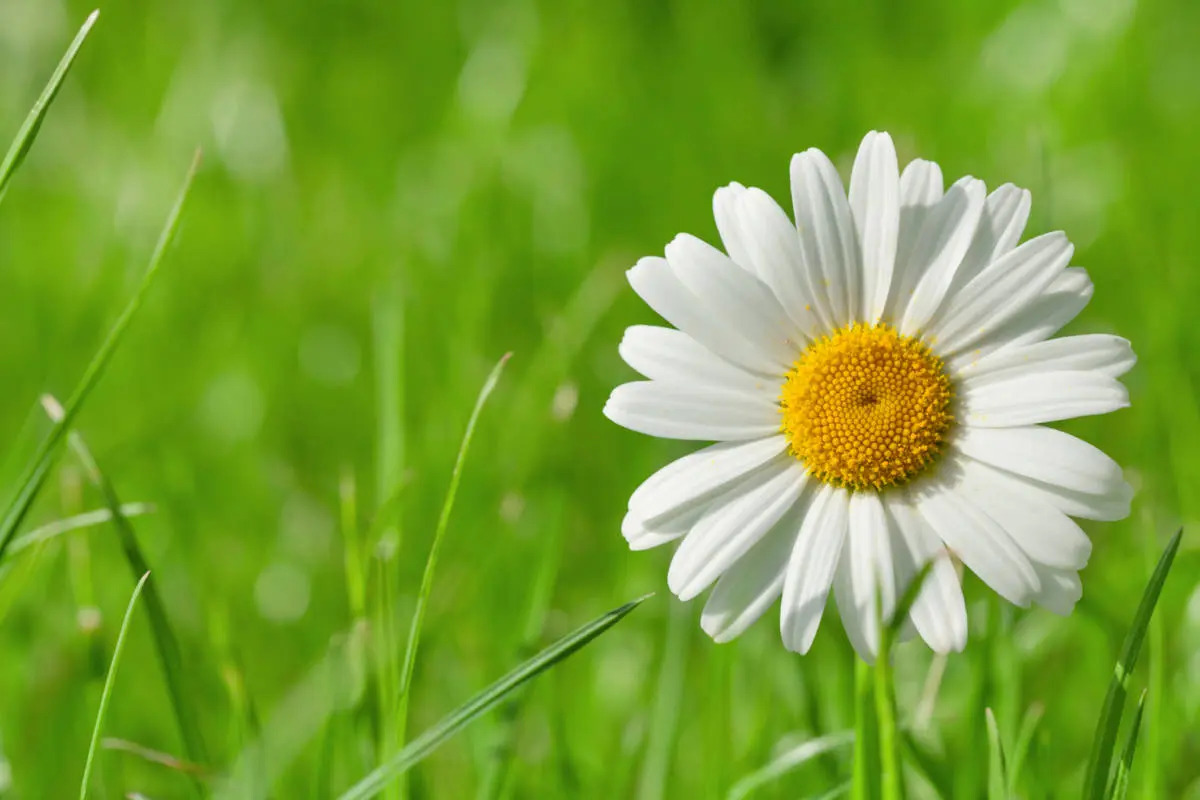
Daisies are one of the most beloved flowers, known for their delicate beauty and vibrant colors. But did you know that there is more to daisies than meets the eye? In this article, we will explore 20 astounding facts about daisies that will surely surprise and captivate you. From their fascinating history to their remarkable adaptations, daisies have a wealth of secrets to uncover. Whether you’re a gardening enthusiast, a nature lover, or simply curious about the world around you, these facts will inspire a deeper appreciation for these charming flowers. So, let’s dive in and discover the hidden wonders of daisies!
Key Takeaways:
- Daisies come in various colors and have a long lifespan, making them a low-maintenance and cheerful addition to any garden. They also symbolize love, purity, and innocence, making them a meaningful gift for special occasions.
- Daisies are not only beautiful but also edible and have medicinal properties. They attract pollinators, have a rich cultural history, and are a favorite subject for artists and photographers.
The Daisy flower comes in various colors including white, yellow, and pink.
Daisies are not just white! They can also be found in vibrant hues of yellow and pink, adding a pop of color to any garden.
Daisies belong to the Asteraceae family, which is one of the largest plant families.
The Asteraceae family is incredibly diverse, with over 23,000 known species. Daisies are just one small branch of this extensive family tree.
The term “daisy” is derived from the Old English word “daes eage,” meaning “day’s eye.”
When you look at a daisy, it’s easy to see why it got its name. The yellow center surrounded by the white petals resembles the sun, hence the association with daylight.
Daisies are herbaceous plants, meaning they have soft, non-woody stems.
Unlike shrubs or trees, daisies have flexible stems that die back to the ground during the winter and regrow each spring.
There are over 32,000 species of daisies found all around the world.
From meadows to gardens, daisies can be found in almost every corner of the globe. Their adaptability and hardiness have made them a common sight in various ecosystems.
Daisies are popular symbols of purity and innocence.
Throughout history, daisies have been associated with virtues such as purity, innocence, and new beginnings. They are often used in floral arrangements for weddings and other special occasions.
The daisy is the birth flower for the month of April.
People born in April are lucky to have the daisy as their birth flower. It represents their qualities of purity, beauty, and gentleness.
Daisies can propagate easily through their seeds.
One of the fascinating aspects of daisies is their ability to produce numerous seeds. These seeds can be easily scattered by wind or animals, allowing daisies to spread and grow in different areas.
The daisy is often used as a herbal remedy for various ailments.
Throughout history, daisies have been used in traditional medicine to treat conditions such as indigestion, coughs, and skin irritations. Their leaves and flowers contain beneficial compounds known for their medicinal properties.
Daisies are beloved by pollinators such as bees and butterflies.
The vibrant colors and sweet nectar of daisies make them attractive to pollinators. Bees and butterflies often visit daisies, helping to transfer pollen and ensure the plants’ reproduction.
Daisies are edible and can be used in salads, soups, and teas.
Daisies are not just pretty to look at; they are also safe for human consumption. The petals can be used as a decorative addition to salads or brewed into a soothing tea.
Daisies close their petals during the night and reopen in the morning.
Like many other flowers, daisies have a natural circadian rhythm. Their petals close up at night, protecting the center of the flower, and then reopen when daylight returns.
Daisies are a favorite subject for artists and photographers.
The simple beauty of daisies has inspired countless artists and photographers. From paintings to photographs, daisies have been captured in various art forms throughout history.
Daisies are often used in floral crafts such as wreaths and bouquets.
Due to their availability and versatility, daisies are commonly used in crafting floral arrangements. They can be incorporated into wreaths, bouquets, and other decorative pieces.
Daisies can symbolize love and loyalty.
For those seeking a romantic gesture, daisies can convey feelings of love, loyalty, and commitment. They make a meaningful gift for anniversaries or special occasions.
Daisies have been mentioned in literature and poetry for centuries.
Daisies have captured the attention of poets and writers throughout history. Their delicate beauty and cultural symbolism have made them a popular motif in literature.
Daisies have a long lifespan, often blooming for several weeks.
Unlike some flowers that bloom for just a short period, daisies have an impressive longevity. With proper care, they can provide weeks of cheerful blossoms.
Daisies are a great addition to any garden due to their low maintenance requirements.
If you’re looking for a low-maintenance flower to enhance your garden’s beauty, daisies are an excellent choice. They thrive in a variety of environments and require minimal care.
Daisies play a role in folklore and superstitions.
In folklore, daisies have been associated with various superstitions. For example, it was believed that if you picked a daisy petal and said, “He loves me, he loves me not,” the outcome would reveal your true love’s feelings.
The daisy is the national flower of Scotland.
In Scotland, the daisy holds a special place as the national flower. Its resilience and beauty make it a fitting symbol for the country’s natural landscapes.
Conclusion
Daisies are incredible plants that have captivated humans for centuries. From their delicate appearance to their remarkable resilience, there’s no denying the charm and significance of daisies. Whether you’re a gardening enthusiast or simply appreciate the beauty of these blooms, learning more about daisies can enhance your appreciation for nature’s wonders. With their wide array of colors and their ability to thrive in various climates, daisies continue to enchant us with their simplicity and elegance. So the next time you spot a daisy in a field or in a bouquet, take a moment to admire its beauty and remember the astounding facts that make these flowers truly extraordinary.
FAQs
Q: Are daisies easy to grow?
A: Yes, daisies are relatively easy to grow and they can thrive in a wide range of climates and soil conditions.
Q: Can daisies be grown indoors?
A: Yes, daisies can be grown indoors in pots or containers as long as they receive enough sunlight and are provided with proper care and maintenance.
Q: Do daisies have any medicinal properties?
A: Yes, certain species of daisies like the chamomile daisy have been used for centuries in herbal medicine to help treat conditions such as anxiety, insomnia, and digestive disorders.
Q: Are daisies toxic to pets?
A: While daisies are generally considered non-toxic to pets, it’s always best to consult with a veterinarian if your pet has ingested any plant material.
Q: Can daisies be used in floral arrangements?
A: Absolutely! Daisies are popular choices for floral arrangements due to their vibrant colors and long-lasting blooms. They add a cheerful touch to any bouquet or centerpiece.
Q: Are daisies considered invasive plants?
A: Some species of daisies, like the oxeye daisy, can be invasive and crowd out native plants. It’s important to check with your local authorities before planting daisies to ensure they are not considered invasive in your area.
Was this page helpful?
Our commitment to delivering trustworthy and engaging content is at the heart of what we do. Each fact on our site is contributed by real users like you, bringing a wealth of diverse insights and information. To ensure the highest standards of accuracy and reliability, our dedicated editors meticulously review each submission. This process guarantees that the facts we share are not only fascinating but also credible. Trust in our commitment to quality and authenticity as you explore and learn with us.


